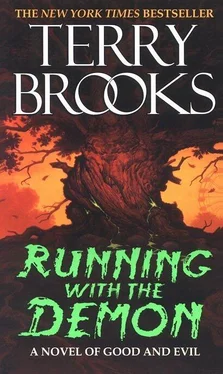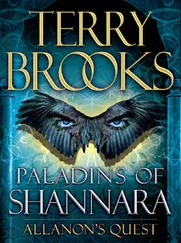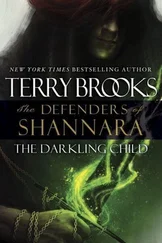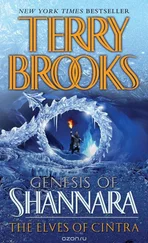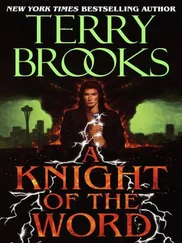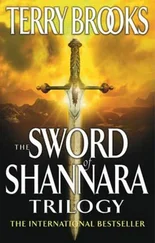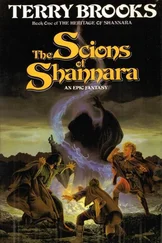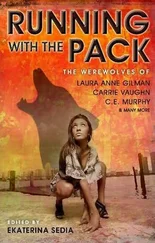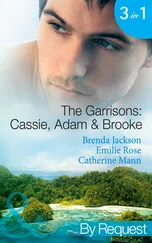So he waited, frozen in time. He tried to envision what his life would be like in service to the Lady. He tried to resolve his doubts and his fears, to settle within himself the feelings of inadequacy that had begun to surface. What could he do, that would make a difference? What would be required of him, that he would be able to respond? Was he strong enough to do what was needed? Was he anything of what the Lady believed?
He waited for her to speak to him, to reveal her purpose for him. She did not. He visited with friends and acquaintances from his past, marking time against an uncertain future. Weeks went by. Still the Lady did not appear. Doubts set in. Had he dreamed it all? Had he imagined her? Or worse, had he mistaken her intent? What if the great purpose he had envisioned, the purpose for which he had searched so long, was a lie?
Doubts turned to mistrust. What if he had been deceived? He was beset by nightmares that woke him shaking and chilled on the hottest nights, sweating and fiery in the coldest of rooms. Something had gone wrong. Perhaps he was not the champion she had been looking for, and she had realized it and abandoned him. Perhaps she had forsaken him entirely.
Strong belief turned slowly to fragile hope, the Lady's whispered promise echoing through the empty corridors of his mind.
Your way lies through me. I am the road that you must take.
Then the Indian came to him. He was sitting on the bed in his room, alone in the house, his parents gone for the afternoon. He was staring at words on a paper before him, words that he had written in an effort to find reason in what had happened to him, when the door opened and the Indian was standing there.
"I am O'olish Amaneh," he said quietly.
He was a big man, his skin copper–colored, his hair braided and black, his eyes intense and probing. He wore old army clothes and moccasins and carried a backpack and bedroll. In one massive hand, he gripped a long black staff.
He came into the room and shut the door behind him. "I have come to give you this," he said, and held out the staff.
Ross stared, saw the sheen of the wood, the rune marks cut into the shiny surface, and the way the light played over both. He sat there on the bed, frozen in place.
"You are John Ross?" O'olish Amaneh asked him.
Ross nodded, unable to speak.
"You are a Knight of the Word?"
Ross bunked rapidly and swallowed against the dryness in his throat. "Do you come from her?" he managed.
The Indian did not answer.
"Are you in service to the Lady?" he pressed.
"The staff belongs to you," O'olish Amaneh insisted quietly, ignoring him. "Take it."
Ross could not do so. He knew with sudden, terrifying certainty that if he did, there would be no turning back. The clarity of his knowledge was appalling. It was the staff, something in the way it gleamed, in its blackness, in the intricacy of its carvings. It was in the implacable way the Indian urged him to take hold of it. If he did so, he was finished. If he did so, it was the end of him. He was not ready for this after all, he saw. He no longer wanted to be a part of what had happened in the Fairy Glen, in Wales, in the realm of the Lady's magic.
The Indian was a rock, standing, before him unmoved. "Your faith must be stronger than this," he advised in a whisper. "Your faith must sustain you. You swore to serve. You cannot recant. It is forbidden."
"Forbidden?" Ross repeated in disbelief. He was nearly in tears, filled with contempt for himself, for his weakness, for his failing resolve. "Don't you understand?" he breathed.
The Indian gave no sign as to whether he did or not. "You are a Knight of the Word. You have been chosen. You have need of the staff. Take it."
Ross shook his head slowly. "I can't."
"Stand up," O'olish Amaneh ordered.
There was no change of expression in the big man's face, no sign of disappointment, of anger, of anything. The eyes fixed on John Ross, calm and steady, as dark and deep as night pools, bottomless pits within the shadow of the great brow. Ross could not look away. Slowly he rose to his feet. The Indian came forward and held the staff out to him, before his terrified face, the carved markings, the polished wood, the gnarled length.
"Take the staff," he said quietly.
John Ross tried to step away, struggled to break free of the eyes that held him bound.
"Take the staff," O'olish Amaneh repeated.
Ross brought his hands up obediently, and his fingers closed about the polished wood. Instantly, fire ripped through his body. Oh, God! His left foot began to cramp, pain seizing and locking about it, working its way down to the bone. Ross tried to scream, but found he could make no sound. The pain intensified, growing worse than anything he had ever experienced, than anything he had imagined possible. His hands fastened so tightly about the staff that his knuckles turned white. He felt as if Ms fingers were imprinting the wood. He could not make himself let go. His foot jerked and twisted, and the pain climbed up his leg, cramping his muscles, tearing his ligaments, setting fire to his nerves. It bore into his knee, and now his mouth was open wide and his head thrown back in agony.
Then, just as quickly as it had appeared, the pain was gone. John Ross gasped in shock and relief, his head sagging on his chest. He leaned heavily on the black staff, letting it support him, relying on its strength to hold him erect. My God, my God!
Slowly O'olish Amaneh stepped away. "Now it belongs to you," the Indian repeated. "You are bound to it. You are joined as one. You cannot give it up until you are released from your service. Remember that. Do not try to put it from you. Do not try to cast it away. Ever."
Then O'olish Amaneh was gone, out the door and down the hall, as silent as a ghost. Ross waited half a breath, then took a quick step toward the door to close it. He collapsed instantly, his foot turning in, his leg unable to bear the weight of his body. He struggled back to his feet, leaning on the staff for -support, and fell again. He sprawled on the floor, staring down at his leg. Once more he climbed to his feet, gritting his teeth, squeezing shut his eyes, so fearful of what had been done to him that he could barely breathe.
He was finally able to stand, but only with the aid of the staff. He was going to have to learn to walk all over again. He leaned against the wall and cried with rage and frustration.
Why has this been done to me?
He would have his answer that night when he dreamed for the first time of the future that was his to prevent.
"Penny for your thoughts, John Ross."
It was evening, the daylight gone hazy and dim with twilight's slow descent, the heat lingering in a thick blanket across the broad stretch of the park. Ross was sitting alone on the grass beneath an old hickory just back from where the band was setting up for the dance in the pavilion. People were milling about, watching the proceedings, eating popcorn, ice cream, and cotton candy and drinking pop, lemonade, and iced tea. Ball games were still under way on the diamonds, but the last of the organized races and the horseshoe tournament had come to a close. Ross had been lost momentarily in the past, in the days before he understood what the Lady required of him and what it meant to be a Knight of the Word.
The familiar voice brought him out of his reverie. He looked up and smiled at Josie Jackson. "A penny? I expect that's more than they're worth. How are you?"
"I'm fine, thank you." She stood looking at him for a moment, openly appraising him. She was wearing a flower–print blouse with a scoop neck and a full, knee–length skirt cinched about her narrow waist. She had tied back her blond hair with a ribbon, and wore sandals and a gold bracelet. She looked fresh and cool, even in the stifling heat. "I missed you at breakfast this morning. You didn't come in."
Читать дальше
